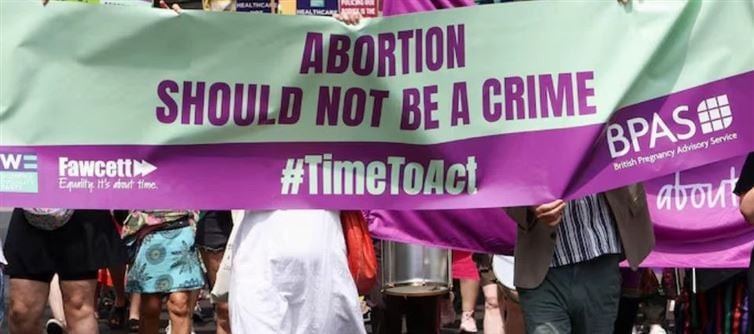
Abortion has been permitted in england and wales for nearly 60 years, however, it is only permitted up to 24 weeks into a pregnancy and requires the consent of two doctors. However, according to a statute from the Victorian era, women who terminated pregnancies after 24 weeks faced a possible life sentence.
In Britain, convictions under this legislation have been uncommon, but with the COVID-19 outbreak, prosecutions increased. The legal reform that allowed abortion drugs to be administered at home for pregnancies up to 10 weeks after conception was followed by this surge.
According to Reuters, an amendment to stop all charges for women who terminate pregnancies was initially approved by a margin of 379 votes to 137 in a free parliamentary vote in which lawmakers were not constrained by party directions. Medical personnel may still be prosecuted if they help women get abortions after the 24-week mark.
As it moves through the house of Commons and the house of Lords, the amendment, which is part of a bigger law, might still be changed or rejected.
Tonia Antoniazzi, a Labour mp, noted that in the last five years, 100 women have been the subject of inquiries due to the current legislation. Women who had given birth too soon or who had been forced to have an abortion by violent spouses were among these cases, she said. "All of these cases are travesties made possible by our antiquated abortion law," Antoniazzi told parliament. This must stop because it is harsh and not fair.
Politicians, however, warned of possible unforeseen repercussions and advised against hastening the planned legislation through parliament. For example, Conservative mp Rebecca Paul said that "fully developed babies up to term could be aborted by a woman with no consequences" if the amendment were to become law.
An 1861 law that made purposeful pregnancy termination illegal and provided that individuals who did so maybe "kept in penal servitude for life" would be partially repealed by the amendment. The law was passed by an all-male parliament at the time. Although the law was changed in 1967 to allow abortions under specific conditions, the criminal prohibition from the 19th century remained in effect.




 click and follow Indiaherald WhatsApp channel
click and follow Indiaherald WhatsApp channel